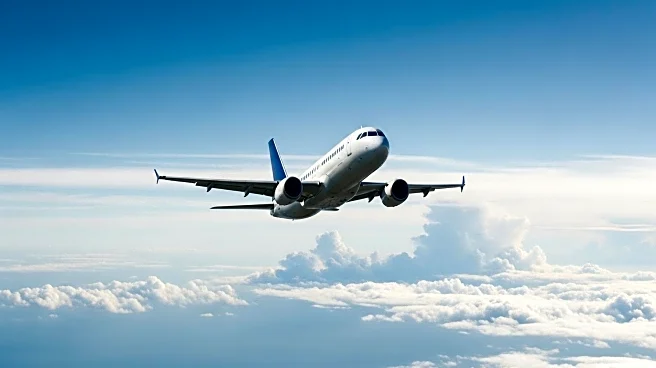What's Happening?
Air Transat is set to launch flights to Brazil for the first time in the winter of 2025-26, marking its entry into the South American market. The Canadian leisure-focused airline will operate Airbus A330s from Toronto Pearson to Rio de Janeiro Galeao twice a week and from Montreal-Trudeau once a week. The service is scheduled to begin in February 2026, pending regulatory approvals. This move positions Air Transat alongside Air Canada, which currently offers direct flights to Brazil. The new routes are part of Air Transat's broader expansion strategy, which includes 14 new routes this winter and a 6% increase in overall capacity compared to last year.
Why It's Important?
The introduction of flights to Brazil by Air Transat is significant as it diversifies the airline's long-haul leisure market beyond its traditional strengths in Europe and the Caribbean. This expansion could potentially increase leisure and VFR traffic, particularly from Montreal, which hosts a large Latin American community. The move also enhances competition in the Canadian-Brazilian air travel market, offering more options for travelers and potentially driving down prices. For Air Transat, this represents an opportunity to capture a first-mover advantage on the Montreal-Rio de Janeiro route, which is currently unserved.
What's Next?
Air Transat's entry into Brazil is expected to stimulate demand for leisure travel between Canada and Brazil, particularly from Montreal. The airline's expansion strategy may lead to further route additions and increased capacity in other markets. As regulatory approvals are pending, the airline will need to navigate these processes to ensure the timely launch of its new services. Additionally, Air Transat's competitors, such as Air Canada, may respond by adjusting their offerings to maintain market share.
Beyond the Headlines
Air Transat's expansion into Brazil could have broader implications for the airline industry, signaling a shift towards more diverse long-haul leisure markets. This move may encourage other airlines to explore similar opportunities in under-served regions, potentially leading to increased connectivity and economic benefits for both Canada and Brazil. The expansion also highlights the growing importance of diaspora communities in shaping airline route strategies.









